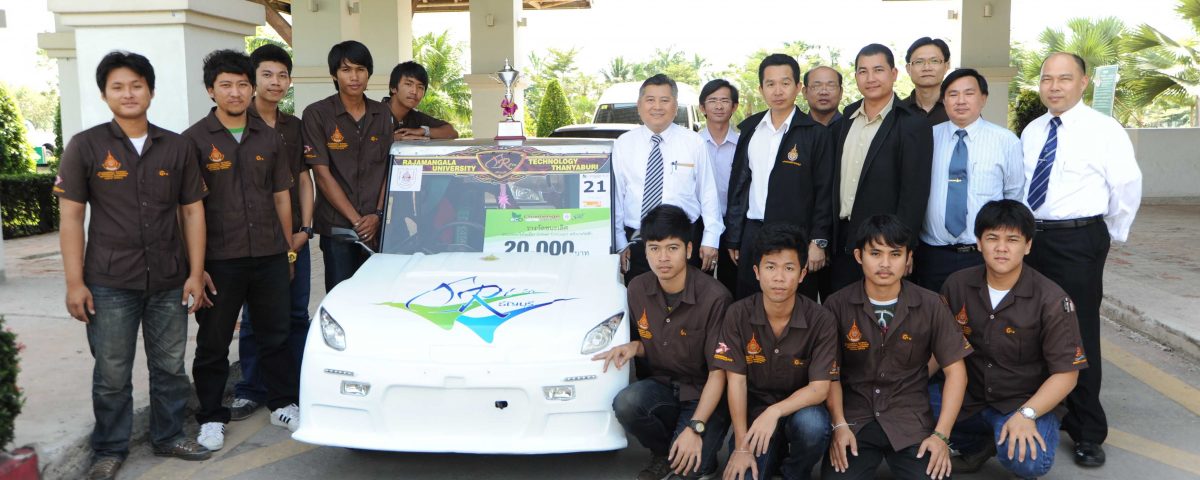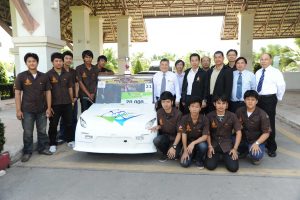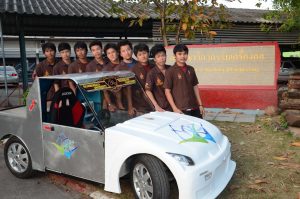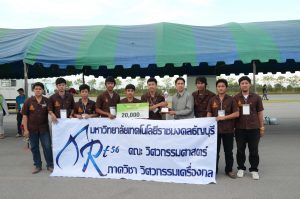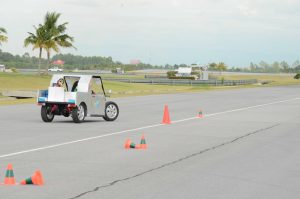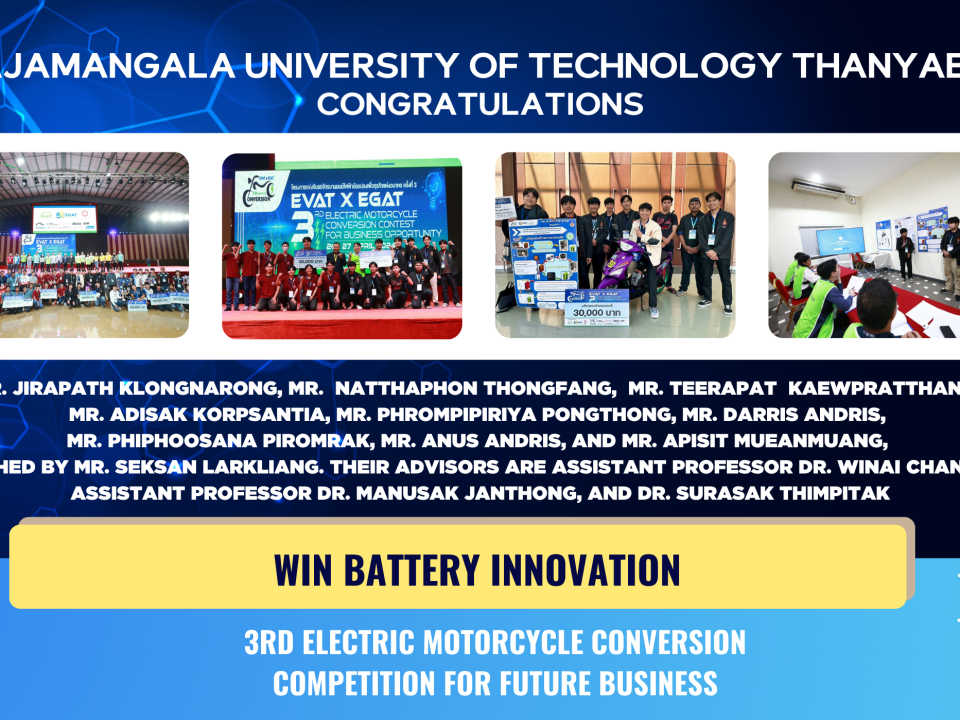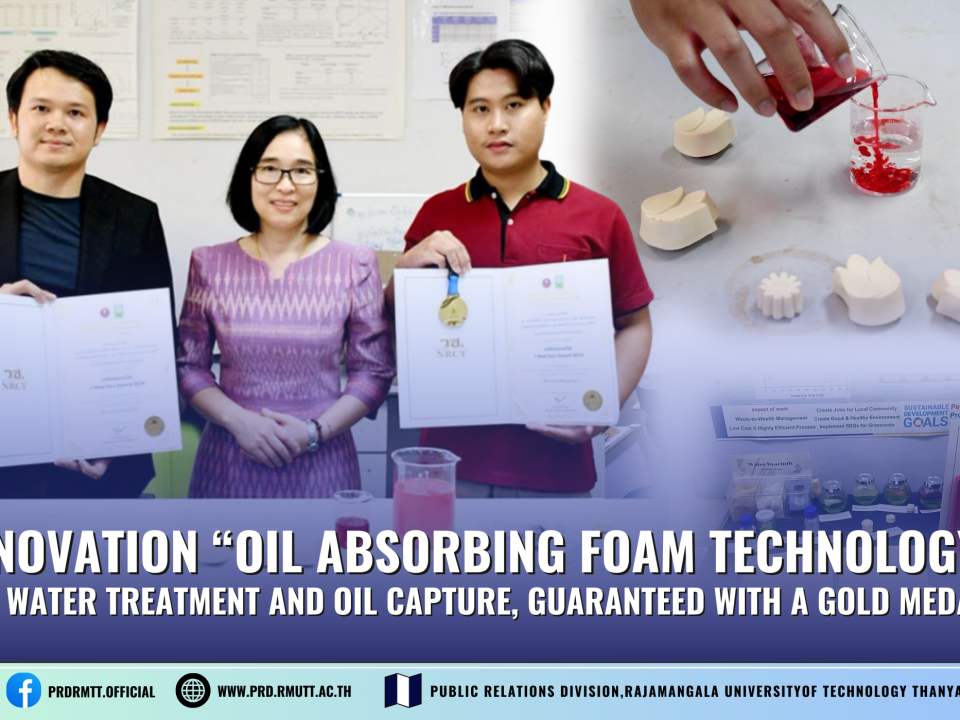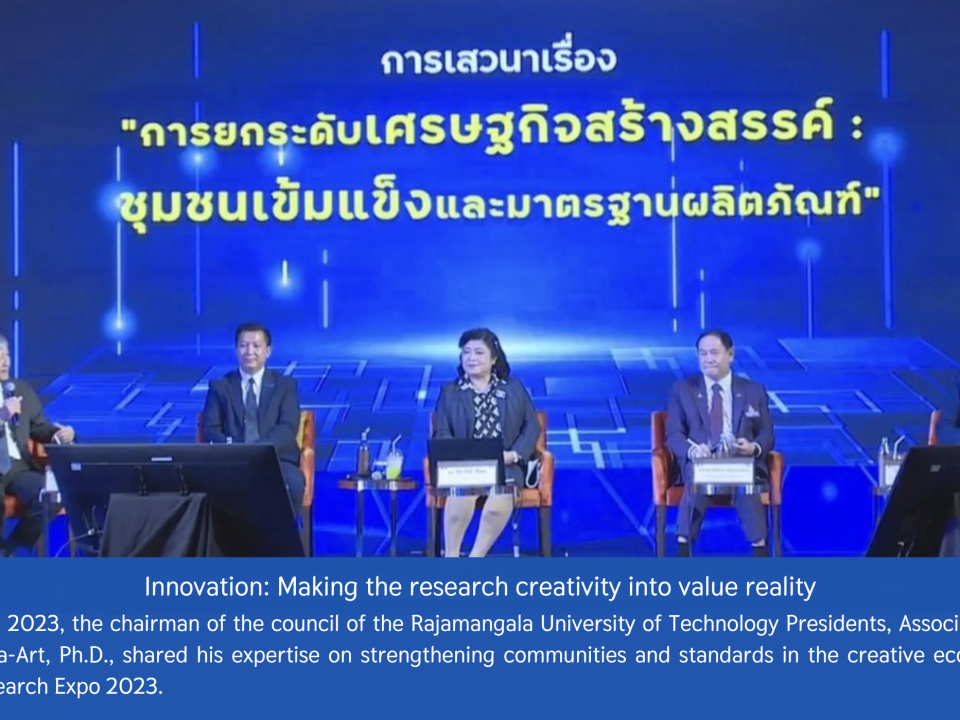Hello world
11/12/2013
Handmade Paper from Pineapple Fibers: Recycled Raw Materials Turned Value-added Product
31/03/2014RMUTT’s engineering students claimed the winning prize in the “urban concept” category at Eco Challenge 2013-14, a competition organized by Engineering Institute of Thailand, under H.M. The King’s Patronage, in collaboration with Society of Automotive Engineer.
The team “RT56” consisted of Thawatchai Lanalao, Somjed Kiatpaiboon, Boonma Meeyuan, Joompot Ngieulai, Tossaporn Palita, Pichet Thepprasit, Santi Meesuk, Adisak Saengsuk, Panupong Soncha, and Warot Phapim, all second-year mechanical engineering majors, with Dr. Sathaporn Thongwik, Dr. Manusak Janthong, and Assist. Prof. Prayut Duangklai acting as advisors.
“After receiving the competition’s brief asking for a construction of an energy-saving vehicle, our team worked together to design, build, and develop a vehicle that would help save energy as well as preserve the environment. Based on the philosophy about global warming, urban pollution, and increasing scarcity of fuel, as well as about clean energy from natural sources such as sunlight, water, and wind, the application of clean energy in motor vehicles would help decrease petroleum consumption as well as urban pollution.
“By studying the existing literature, we learned that car usage is more common as intracity transportation than in long-distant traveling, and electric vehicles are suitable for this purpose because they consume less energy, have lower production cost, and release less pollution. Our team, then, came up with the idea of building an “electric car” that was powered by an electric motor, which was practical and, most importantly, applicable in real life,” said the team representative.
The car was designed to have both an electrical and mechanical control system. Specifically, the electrical control system features a control circuit and power circuit. This power circuit controls the three-phase BLDC motor, which comprises a 48-Volt lithium battery (for supplying voltage of up to 52 Volts to the BLDC motor), battery monitoring system (for displaying the battery status), energy meter (or Joule meter), which regulates the energy supplied to the motor, and BLDC motor controller, which serves the purpose of supplying consistent pressure and frequency to the BLDC motor.
The “electric car” is an innovation designed to raise existing standards for the development of electric vehicles that help reduce pollution caused by petroleum combustion. It also serves as a foundation for further development and application in real life.

